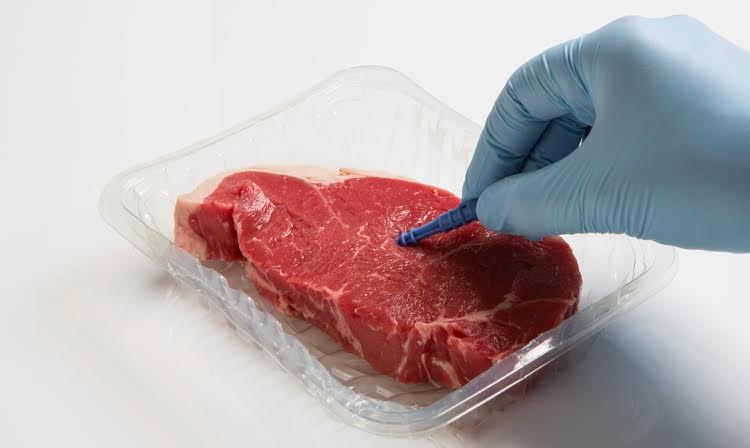In an unassuming business park in Dublin, Ireland is a room packed full of refrigerators and in those refrigerators is the DNA that can tell any Irish pub-goer the exact cow that they are eating for dinner. The business is called IdentiGEN, and it uses a proprietary process to determine the origin of meat or fish down to the individual animal.
The catalyst for the business was the mad cow disease crisis in 1996. Founder and animal genetics expert Ciaran Meghen wanted to create a foolproof way of knowing whether a steak that made it to a store or restaurant had come from an infected cow.
Work on the genetic analysis and matching processes started in 1996, but IdentiGEN didn’t raise venture capital until a $2.5 million round from an Irish VC focusing on commercializing research, 4th Level Ventures, in 2005.
Slow, measured growth would have likely continued, but in 2013, the horse meat scandal hit.
Detection of horse meat in hamburgers supposedly made of beef led to massive amounts of product being pulled from grocery shelves in the UK and Ireland. Burger King and Nestle changed European meat suppliers, and as the hysteria spread, mislabeled horse meat was found in the Czech Republic, Sweden and other parts of Europe. At least 66 arrests were made.
The scandal brought meat provenance verification into the spotlight, and IndentiGEN stepped in to offer assurances to industry players that they were getting what they ordered and serving what they put on their labels and menus.
In 2015, the company raised €12 million ($14.3 million) in private equity funding from MML, a growth-capital fund based in London with an office in Dublin, to meet the demand for meat sourcing verification in the European market.
Though the urgency created by the scandal has somewhat faded, the premium placed on local food, organic farming, and grass-fed has left plenty of incentive for purveyors of meat to verify the provenance and qualities of the meat they source, says Meghen.
“If you’re paying a premium to the different actors throughout the supply chain, there is a risk that you’re going to get shorted and that creates a loss, but it also creates a reputation risk. “
The Swiss meat industry is jumping on board and IdentiGEN has inked a €17 million ($20.3 million) contract with the leading meat coop in Switzerland to verify the provenance of Swiss meat for the next five years. IdentiGEN will begin verifying Swiss beef and veal this year and may expand to pork and poultry.
“To be able to get an entire country to subscribe to this technology as a solution to the risk of mislabeling – in our world that’s as good as it gets,” said Meghen.
Other IdentiGEN clients include large food service groups, grocery chains, and even meat processors looking to offer verifiable proof that their meat deserves a premium price. The company is adding Switzerland to a list of countries that already includes the US, Canada, UK, and Ireland.
When IdentiGEN works with a client, like a grocer for example, they collect small tissue samples from every carcass at meat processing facilities relevant to the client’s supply chain. The samples are sent to labs where they are analyzed and put in a database.
“We pick up our DNA samples at the point of slaughter because that’s the pinch point in the supply chain,” explained Meghen.
Each client gets an individualized reporting structure and requires an intricate network of partners to make sure that every animal at every relevant processor is sampled.
“One of the things that makes this difficult is you have got to work with multi-stakeholder processes.” One client, according to Meghen, can have as many as 30 suppliers of different meat products, which in turn lead back to a handful of processors and thousands of animals. With a tiny sample, IdentiGEN can verify country of origin, organic raising, halal and kosher, and even age, he added.
But are supply chain links or even consumers willing to pay for quality and provenance-verified meat?
Meghen says yes, and so far each client handles the cost of the service differently. “Our cost is absorbed into the supply chain. Sometimes it goes up; sometimes it goes down. Sometimes it’s absorbed in the middle.”
A recent Neilson study found that 60% of British respondents said that they “actively try to buy British meat.” Meghen says it’s the same story in Ireland, where confirming provenance is increasingly important.
“It doesn’t have to be an intentional effort to defraud the end user,” said Meghen, adding that honest mistakes can be made. “You’ve got a guy on the night shift, and he’s got British beef, Scottish beef, and there’s Irish beef, and he’s got to fill an order.”
The Swiss are looking for the same assurances.
“Thanks to clear proof of provenance, this system will bring transparency and further certainty to Swiss meat, strengthening the confidence of consumers and supporting of our national meat industry,” said Proviande director Heinrich Bucher.
Beyond meat, IdentiGEN can verify the provenance of fish and even shrimp. Early this year the company was contracted to verify Norwegian salmon and make sense of the opaque and complicated shrimp supply chain, for British high-end grab and go grocer Marks and Spencer.
photo: IdentiGEN





